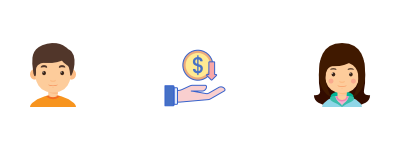| $ 1250 | $ $ 2250 | $ $ $ 7000 |
Home Health Aides are integral parts of America’s healthcare system.
Certified HHAs are trained to provide direct support for disabled and chronically ill patients who rely on their services in some of the following areas.
If you have been considering entering the medical field as a certified allied health provider who spends most of their time providing hands-on care and support for ailing and disabled patients in their homes, becoming a Home Health Aide could be the right career pathway for you!
What Services Do Home Health Aides Typically Provide?
Personal Care and Hands-On Support—Home Health Aides are tasked with providing personal care support for their clients, such as bathing, dressing, and grooming.
Personal care duties can also include helping clients safely to and from the restroom as needed.
Meal Preparation – Ensuring proper nutrition and preparing meals for chronically ill clients is another primary duty of today’s Home Health Aides.
Medication Reminders and Administration – The nature of taking care of ailing and disabled patients often calls for HHAs to provide clients with medication reminders and to administer prescribed medications according to physician’s instructions.
Home Health Aide Training
Becoming a Certified HHA has a low entry barrier which means that most new applicants will only need to complete a short training or education period before becoming eligible to officially work in the role.
Most aspiring HHA providers seeking to work with home care agencies can earn certification within a few days or weeks.
The American Caregiver Association is one agency that offers online certification options for Home Health Aides.
The good news for aspiring Home Health Aides is that, along with having a low entry barrier, the BLS also predicts a surge in the need for well-trained HHA professionals.
The latest Occupational Outlook Handbook for Home Aides and Caregivers predicts that the demand for in-home care professionals to grow by as much as 22% over the next few years.
Independent HHAs can gain certification and training from the ACA and keep up with the latest industry trends and updates through the National Association for Home Care and Hospice.
HHA hopefuls who aspire to work in government-funded Medicare facilities will typically be required to take on more extensive training courses that include up to 75 hours of training and clinical experience.
Incoming HHAs who work privately will likely not be subjected to the same rigorous training and certification requirements as those working independently and in public healthcare facilities.
However, in-home care providers who are serious about honing their craft and providing a higher standard of care will typically enroll in training programs that teach them fundamental and practical skills, which can include the following:
- Mobility Assistance
- Monitoring Vital Signs
- Nutrition and Feeding Support
- Personal Hygiene and Grooming Assistance
Home Health Aide Salary Average – US
Many potential candidates wonder if becoming a Home Health Aide is worth it.
Whether you decide to become a licensed in-home care provider is a personal choice that depends on your lifestyle goals and salary needs.
The average salary for America’s in-home care providers falls right around $33,530.00.
Key factors that can affect the salaries of HHA’s include education, training, certification, work location, employer, public or private service, and the number of years on the job.
Salary data reports show that the lowest-earning aides make around $23,000.00 per year and the highest-earning aides can make over $43,000.00 annually.
How Much Does it Cost to Become a Home Health Aide?
Potential HHA students should note that while the costs of becoming a Home Health Aide are typically affordable for most interested candidates, the actual amount of out-of-pocket expenses can vary by program, state, or region.
Students have the following estimated costs to consider when embarking on an allied health career as a licensed or certified Home Health Aide in the US.
- Background Checks: $50.00 – $100.00
- Books and Supplies: $50.00-$100.00
- Certification Exam Fees: $50.00-$200.00
- Drug Screening: $50.00 – $100.00
- Tuition and Program Fees: $200.00 – $1000.00
- Uniforms and Equipment: $25.00 – $100.00
It is also critically important for prospective Home Care Aides to note that some of the costs of HHA training and certification may be offset by employer-sponsored training programs, scholarships, and financial aid.
Contact the program advisor and financial aid department of your desired training program to learn if you qualify for financial aid or other tuition reduction options if financing your education is a crucial concern for you.
Key Takeaways
- Home Health Aides are in High Demand Across the United States
- Becoming a Home Health Aide Can Be a Rewarding Experience for Dedicated Caregivers
- The Barrier for Entry for New Home Health Aides is Relatively Low in the US
- HHA Certification Programs Are Available for Aspiring Students in Person and Online
- Private Home Care Providers Will Likely Be Subjected to Fewer Regulations Than Those Working in Public Health Care Facilities
- America’s BLS Predicts Strong and Steady Growth for Well-Trained HHAs
Sources
Home Health and Personal Care Aides – BLS
https://www.bls.gov/ooh/healthcare/home-health-aides-and-personal-care-aides.htm
American Caregiver Association – HHA Certification
https://americancaregiverassociation.org/hha-certification/
National Association for Home Care and Hospice
https://nahc.org/
